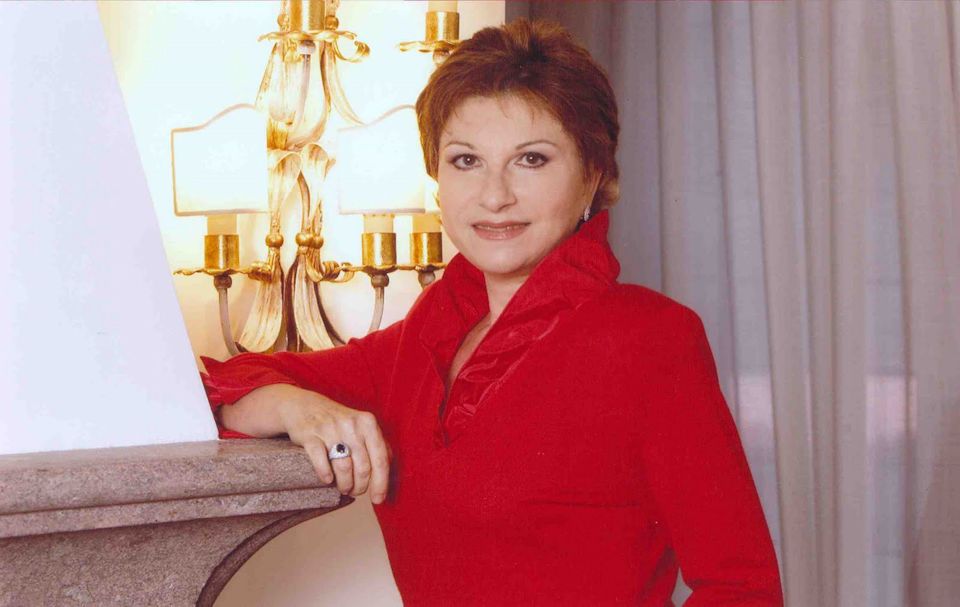

|
Mariella Devia (12 April 1948) is an Italian operatic soprano. After beginning her career as a lyric coloratura soprano, in recent years she has also enjoyed much success with some of the most dramatic roles in the bel canto repertoire. Born in Chiusavecchia, Devia trained at the Accademia Nazionale di Santa Cecilia in Rome with Iolanda Magnoni. She made her stage debut in Treviso in the title role of Lucia di Lammermoor in 1973, and quickly sang throughout Italy, making her debut at La Scala in Milan in 1987, as Giulietta in I Capuleti e i Montecchi. On the international scene, she appeared at the Metropolitan Opera from 1979 to 1994 as Lucia, Gilda, Nannetta, Despina and Konstanze, and at Carnegie Hall as Lakmé, in 1979, and later as Teresa in Benvenuto Cellini, Giulietta in I Capuleti e i Montecchi, Elvira in I puritani and Adelia. She made her debut at the Paris Opera in I puritani, and the Aix-en-Provence Festival as Konstanze in 1987, and at the Royal Opera House in London in 1988 again as Konstanze. She was a regular at the Pesaro Festival and at the Festival della Valle d'Itria in Martina Franca, where she collaborated in the resurrection of long neglected operas by Rossini, Donizetti, Bellini and other bel canto composers. She is also admired for her Mozart performances in Die Entführung aus dem Serail, The Magic Flute, Così fan tutte, Le nozze di Figaro, Don Giovanni and Idomeneo. In 2013, the day after her 65th birthday, she sang for the first time the role of Norma at the Teatro Comunale di Bologna with great success. She has since included the role of Norma in her usual repertoire along with the "Three Donizetti Queens", Maria Stuarda, Anna Bolena and Elisabetta from Roberto Devereux. |
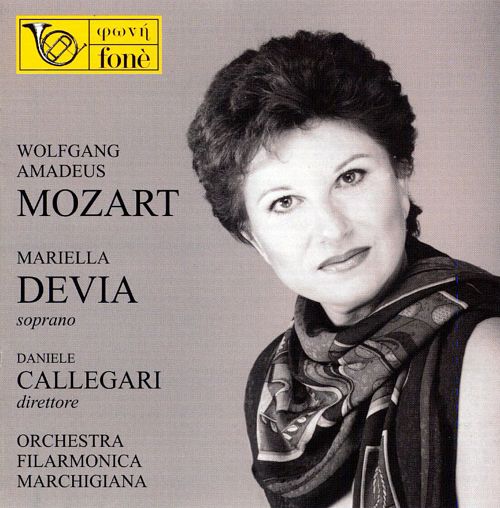 We met just after the opening night, and had a lovely and
laugh-filled conversation. Her answers to my questions got directly
the heart of the idea, and she was careful to make everything clear.
We met just after the opening night, and had a lovely and
laugh-filled conversation. Her answers to my questions got directly
the heart of the idea, and she was careful to make everything clear.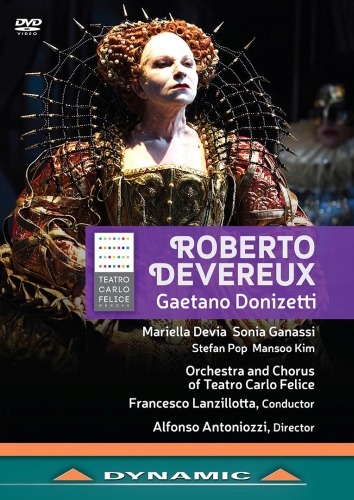 BD: You’re presented with a lot of offers. How do
you decide yes or no?
BD: You’re presented with a lot of offers. How do
you decide yes or no?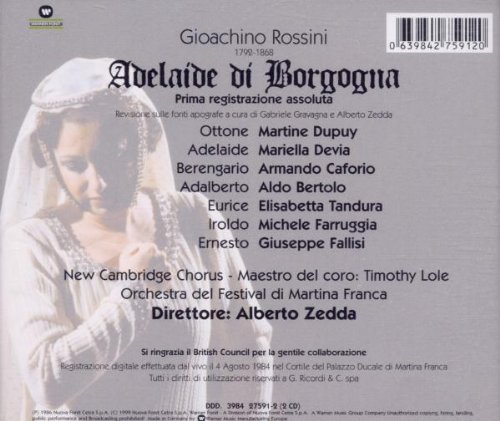 BD: So it’s all wrapped up together?
BD: So it’s all wrapped up together?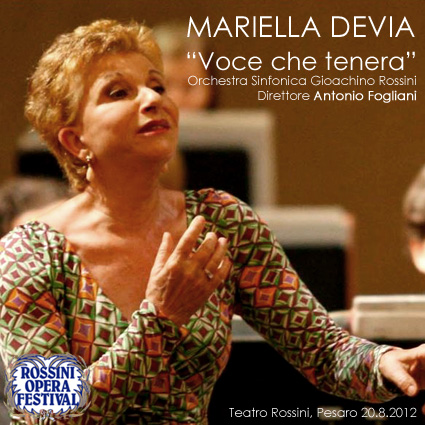 BD: Is the performance on a Tuesday night,
when audiences come from a day of business, different from a Saturday night,
when they’ve come from a day of relaxation or other activities?
BD: Is the performance on a Tuesday night,
when audiences come from a day of business, different from a Saturday night,
when they’ve come from a day of relaxation or other activities?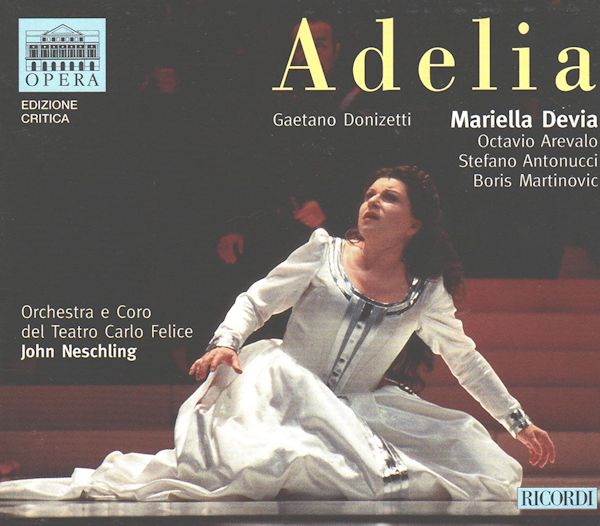 MD: The technique, no. The technique
never changes, but I change the phrasing. Konstanze (Mozart) and Violetta
(Verdi) are written in different ways, but I don’t change the basic technique.
MD: The technique, no. The technique
never changes, but I change the phrasing. Konstanze (Mozart) and Violetta
(Verdi) are written in different ways, but I don’t change the basic technique.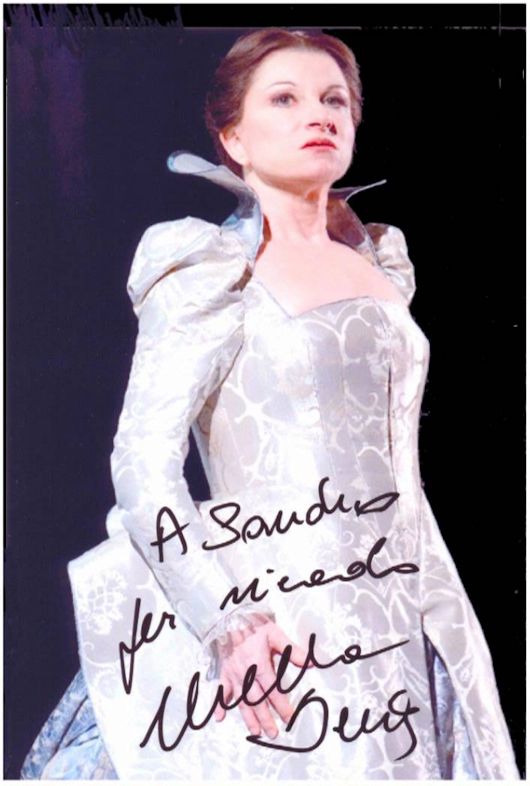 BD: Do you sing any new music at all?
BD: Do you sing any new music at all?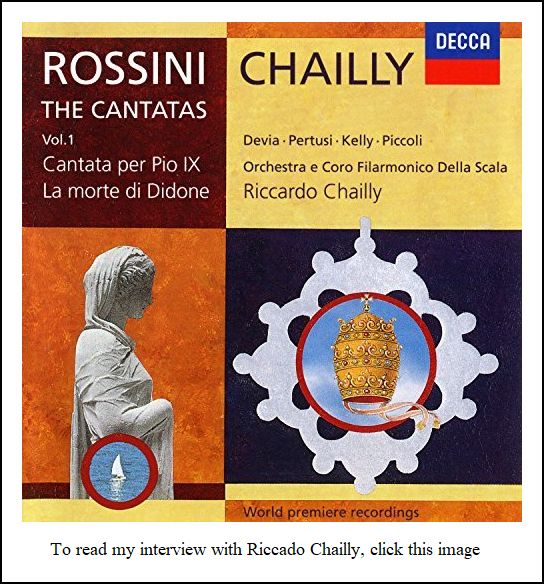 BD: Are you pleased with the live
recordings that are out?
BD: Are you pleased with the live
recordings that are out?This conversation was recorded in Chicago on October 20, 1997. Portions were broadcast on WNIB about three weeks later, and again 1998. This transcription was made in 2018, and posted on this website at that time. My thanks to Marina Vecci of Lyric Opera for translating for us, and to British soprano Una Barry for her help in preparing this website presentation.
To see a full list (with links) of interviews which have been transcribed and posted on this website, click here.
Award - winning broadcaster Bruce Duffie was with WNIB, Classical 97 in Chicago from 1975 until its final moment as a classical station in February of 2001. His interviews have also appeared in various magazines and journals since 1980, and he now continues his broadcast series on WNUR-FM, as well as on Contemporary Classical Internet Radio.
You are invited to visit his website for more information about his work, including selected transcripts of other interviews, plus a full list of his guests. He would also like to call your attention to the photos and information about his grandfather, who was a pioneer in the automotive field more than a century ago. You may also send him E-Mail with comments, questions and suggestions.